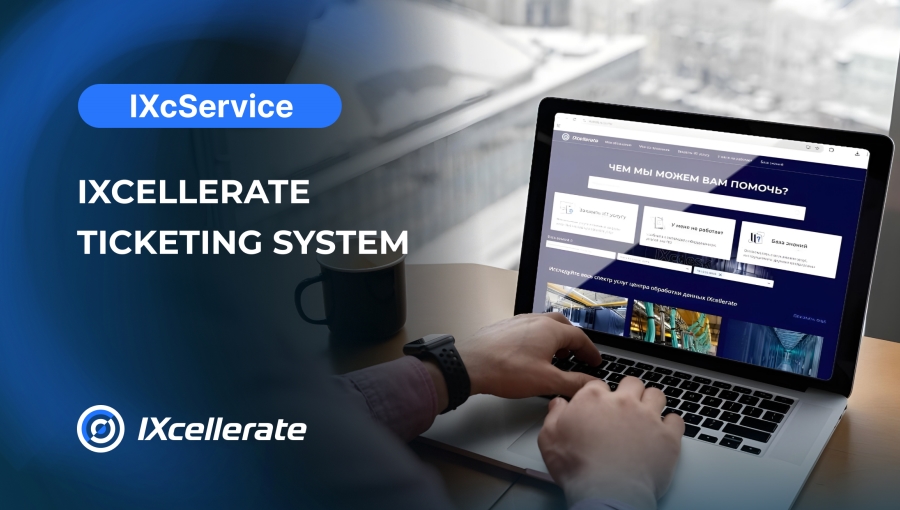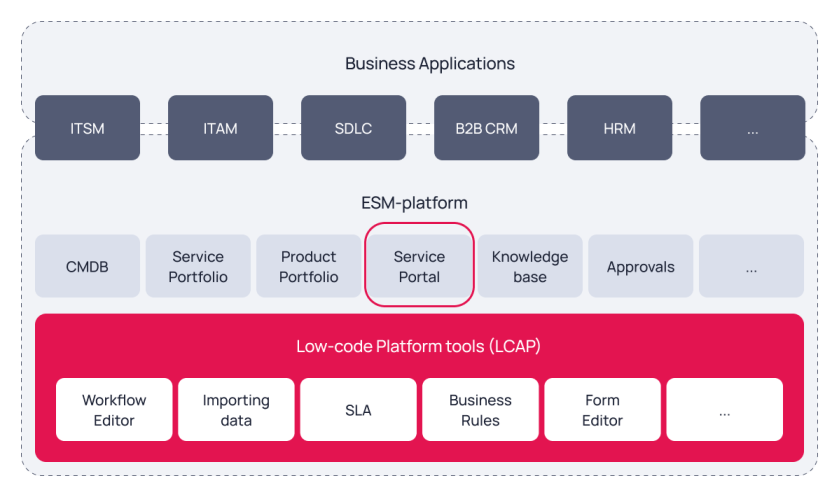
What is a Ticketing System?
A Ticketing System (ITS, Issue Tracking System) is specialized software designed for the registration, tracking, management, and monitoring of events, tasks, or incidents within the realm of information technology. It serves as a single point of entry and a platform for processing requests from both internal and external customers, enabling IT organizations to optimize service processes and enhance the quality of services provided.Ticketing systems are intended for the centralized management of requests and incidents, resource allocation, time tracking, event analysis, priority management, and oversight of activities aimed at resolving issues. Consequently, they are distributed across various departments within the organization or among teams in charge.
Each element within a ticketing system—whether it be a task, incident, or request—undergoes specific stages from the moment it is opened until its final closure. Depending on the type of task, various intermediate states and cycles may be established to help structure the problem-solving process and ensure transparency for all participants.
ITSM
Typically, a ticketing system is part of a broader ITSM (IT Service Management) framework aimed at managing and automating IT services. ITSM serves as a unified digital platform for managing business processes.
The primary goal of ITSM is to ensure that IT services align closely with the needs of the business and meet the satisfaction of end-users. To achieve this, clear and transparent service delivery processes are established, Service Level Agreements (SLAs) are introduced, quality is monitored, and incidents are resolved promptly.
IT automation is utilized to enhance efficiency, reduce the number of errors caused by human factors, save costs and resources on repetitive routine tasks, ensure reliability and predictability in task execution, and facilitate subsequent scaling as loads on information and analytical systems increase. There are specific methodologies and frameworks for implementing ITSM, such as ITIL, COBIT, ISO/IEC 20000, Lean IT, and others.
ITSM can be likened to the human nervous system. Just like a human body, it has external receptors (sensor organs for information absorption), a processing center (the brain), and executive mechanisms (the body’s parts). Similar to humans, it has the capacity to learn, accumulate knowledge and skills, correct its own mistakes, and improve the accuracy and efficiency of its actions.
In its “lifecycle,” ITSM performs and processes various events and processes such as:
- Service requests from users or staff;
- Events identified through system monitoring;
- Configuration of the system or its individual components;
- Provision of accurate and up-to-date information about configuration items necessary for delivering IT services;
- Tracking and implementing changes with minimal disruption to provided IT services and reduced operational risks;
- Maintaining a registry of problems and known errors;
- Managing workarounds for resolving errors and issues;
- Reducing the number of incidents and minimizing their impact;
- Keeping a register (portfolio) of IT services and storing them according to their lifecycle;
- Defining key service delivery requirements and target quality indicators;
- Providing current and accurate information about delivered services.
Key functions of ticketing systems
The tasks of ITSM (IT Service Management) are aimed at improving the quality and efficiency of IT services, which is achieved through standardized processes and practices. Ticketing systems are an essential tool in this approach, allowing for centralized management of incidents and requests.
Key functions include:
- Centralized tracking: the ticketing system provides a single registry for all requests and incidents, simplifying their management and monitoring.
- Resource allocation: the system enables effective distribution of tasks among departments or teams, facilitating quicker responses to requests.
- Time tracking: ticketing systems record the time spent on resolving each task, which helps in analyzing team performance and planning resources.
- Event Analysis: analytical tools allow for the identification of recurring issues, trend analysis, and informed decision-making to improve service quality.
- Priority Management: ticketing systems assist in setting priorities for tasks, enabling teams to focus on the most critical incidents.
- Progress Monitoring: the system provides oversight of the problem resolution process, allowing tracking of ticket status at each stage of handling.
Types of ticketing systems
Ticketing systems are an essential tool for managing requests and incidents across various domains. There are several types of ticketing systems, including those for technical support, project management, customer request handling, and business process automation. Each of these systems is designed to optimize workflows and improve communication between teams and clients.
Among the most popular types of ticketing systems are:
- Help Desk: This system is used for organizing the handling of user inquiries, but its functionality is limited to this purpose.
- Service Desk: This system is more functional and allows for the establishment of a comprehensive ITSM support service.
The main functions and capabilities of both type are summarized in the table below.
| Functions | Help Desk | Service Desk |
| Ticket submission and opening | ||
| Task distribution among executors | ||
| Setting deadlines according to SLA | ||
| Customer communication | ||
| History storage of inquiries and tickets | ||
| Notifications about ticket status and changes | ||
| Service catalog creation | ||
| ITIL process configuration | ||
| Scenario-based routing configuration | ||
| Knowledge base management | ||
| KPI monitoring and employee rating system |
IXcellerate ticketing system
IXcellerate, a leading operator of commercial data centers in Russia, is using the SimpleOne ITSM platform, developed in Russia. This platform represents a comprehensive IT service management system and includes the IXcdesk ticketing system, through which all requests from data center clients and internal users within the company’s IT department are registered, distributed, and processed.
IXcdesk combines an external portal for clients and an internal portal connected to customer service divisions, IT departments, sales, accounting, and other units. The number of IXcdesk users, both external and internal, at IXcellerate exceeds 1,500.

IXcdesk features a comprehensive catalog of IT services for internal users, which includes performance standards for requests and allows for precise customization of each service. The effectiveness of internal services at IXcellerate is monitored alongside external ones: all requests from employees are also structured and controlled through the IXcdesk customer portal. This makes the process of receiving, processing, and closing requests more transparent and predictable.
The IXcellerate service portal provides a full range of services throughout the entire client engagement period with IXcellerate. Customer requests are processed 24/7 in both Russian and English, with a guaranteed initial response time of no more than fifteen minutes. The portal maintains a history of inquiries and tracks the resolution process.
The IXcellerate migration to the SimpleOne ITSM along with the IXcdesk ticketing system was completed in 2022. The transition to the new platform was smooth, without any downtime or disruptions to the service department’s operations.
To date, all customer interactions occur through a personal account, where a complete history of interactions for each request is maintained. For example, a customer can independently order a pass— from entering data to receiving it from security will take just a few minutes. In the personal account, clients can order new services and view statistics on energy consumption for their deployed racks.

«By paying attention to each request and creating personalized solutions, we can not only meet expectations but also exceed them. Ultimately, this customer-centric approach helps build long-term relationships and strengthen our reputation as a reliable partner in the market».
Olga Sukhova, Customer Service Director at IXcellerate